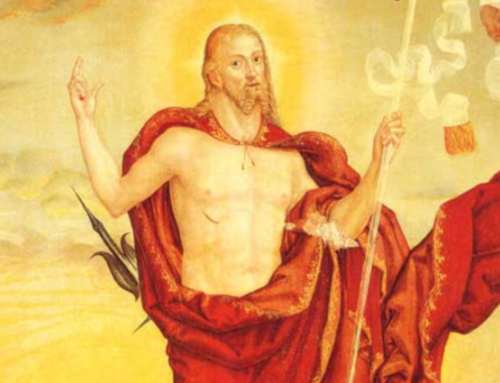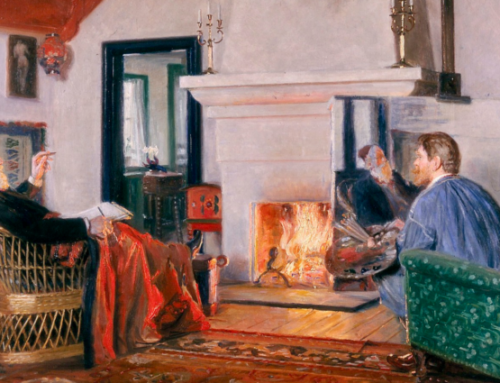There is nothing unique in Prince Harry’s story. The same plot applies to all who have walked down the selfish, disastrous road of postmodernity, where every tradition and social structure must be questioned, and every narrative denied.
If there is a figure that is not a role model, it is Prince Harry, son of Charles III of the United Kingdom. His ghostwriter-assisted memoir, Spare, presents not a fairy tale prince but a postmodern anti-hero intent upon destroying the ancient structures around him.
The sordid details of the author’s tragic life are best left unread. What makes the book important is its cultural impact. The prince reflects the prevailing ethos of seeing all things through the prism of self. He plays the eternal victim in a painful whine-fest that sickens the observer. Such behavior inevitably leads to unhappiness—even among those like the prince who seems to have everything.
His shocking actions fit in with the present culture of gratification and politically-correct victimhood. What makes his case different is the grand scale of the unfolding drama.
Unfathomable Self-Absorption
The theme of self-absorption is indeed unfathomable. The book’s message is that there is a universe called Prince Harry that must be the object of everyone’s attention. Thus, there is no detail of his life that is uninteresting. There are no rules that he must follow. His quest for happiness must not be impeded by anything.
Entering into this universe of self-worship is the great injustice of rules, duties and tragedy. Such intrusions happen in every man’s life, especially those who should play great roles in society, like the prince. Most brave men—true Christians—embrace suffering and become individuals with character and honor.
However, the prince wants nothing to do with such proposals. Avoiding discomfort becomes an obsession. There is no passion or sin that cannot be justified. Hard drugs dull the pains of his dissolute life. Everything is a cause of anxiety and panic attacks. Anything said against Meghan must be interpreted as racist. Traditions and the monarchy, the source of all public interest in him, means nothing to him in this enclosed universe.
Service, a Joy?
A second theme that permeates the debate around the book is the prince’s aversion to service. The title, Spare, purportedly comes from the comment of then-Prince Charles, who, upon learning of his younger son’s birth, said he now had an heir (William) and a spare (in Harry).
The prince finds this role humiliating. Perhaps the prince forgets that his grandmother, Elizabeth II, was also a “spare,” who unexpectedly stepped up to the throne and assumed a life of sacrifice and service. For this reason, she was so beloved by hundreds of millions worldwide.
However, Prince Harry rejects living in anyone else’s shadow. He resents any conformity to pre-established norms that prevent him from being himself. The postmodern notion of the self-created man who constructs himself based upon whims and desires is very present in this obsession.
Again, traditionally men have always found a purpose in life by being disposed to serve a higher ideal than self. The service of God and neighbor can be the source of the great joy that eludes the prince.
Awaiting God’s Grace
The most tragic part of the controversy is the complete absence of God and religion. His path follows society’s cold secular outlook that excludes God from the panorama. His situation reflects well the words of Saint Augustine, who speaks of two types of love: “The love of God unto the forgetfulness of self, or the love of self unto the forgetfulness and denial of God.”
This Divine presence is the missing ingredient that would give meaning and purpose to the prince’s life. Alas, it would do the same to all the royal actors in this sad drama. God’s saving grace would breathe new life into those institutions that, as the Queen’s funeral proved, so well express the aspirations of the English people.
The corrosive effect of the prevailing atheist culture upon the royal family makes all the more timely the supplication: God save the King!
A Representative Character
There is nothing unique in Prince Harry’s story. The same plot applies to all who have walked down the disastrous road of postmodernity. Every tradition and social structure must be questioned, and every narrative denied.
What sets his story apart from others is his immense influence on society.
Like it or not, Prince Harry is what sociologists call a representative character. Every society has these representative figures who act as unifying symbols. When they make the great sacrifice of doing their duty, they can take the principles, moral qualities, and virtues desired and needed by their communities, states or nations and translate them into concrete programs of life and culture.
Moral philosopher Alasdair MacIntyre writes that such characters “are, so to speak, the moral representatives of their culture, and they are so because of the way in which moral and metaphysical ideas and theories assume through them an embodied existence in the social world.”
A Crisis of Duty
One cause of today’s crisis is that representative characters at all social levels fail to do what they should. When natural leaders like Prince Harry do their duty and make the sacrifice of being role models, they do immense good for society and contribute to a rich and elevating social life. They can aid the sanctification of souls by their promotion of virtue.
However, when these figures take advantage of their position and become bad role models, they bring down all of society and themselves. The memoir Spare is a tragic example of how low things can go.
As the Gospel says, salt that loses its savor is only suited to be trodden underfoot. When such figures become anti-heroes, they are like spares who reject their calling because they choose to be useless flat tires instead.
The Imaginative Conservative applies the principle of appreciation to the discussion of culture and politics—we approach dialogue with magnanimity rather than with mere civility. Will you help us remain a refreshing oasis in the increasingly contentious arena of modern discourse? Please consider donating now.
The featured image is a photograph of British Royal Army Captain (Prince) Harry walking past the tombs of Section 60 in the Arlington National Cemetery, Arlington, Va. May 10, 2013. (U.S. Army Photo by Sgt. Laura Buchta). This file is in the public domain, courtesy of Wikimedia Commons.








Very well said, as always by Mr. Horvat.
So well written. Not at all religious but love your quotes.
Excellent commentary. Furthermore, in the milieu of modernist, agnostic (at best) society, a predictable association can be also made to associative, contemporary sitcom entertainment: “Everyone Loves Prince William.”
Well said! Interesting that you noted St. Augustine in a parallel sense due to his own moral and theological errors early on in life. Of course, Diana was no St. Monica, but you have to wonder how differently molded he would have become had there been that guidance that only a mother can provide. Ah, youthful indiscretion…spare time will tell.
One also has to wonder how differently molded he would have been if his father had been faithful to his marriage vows.
Well written! Reminds me of Roman Holiday after Audrey Hepburn has returned to the palace in Rome:
Joe Bradley: “Life is not what one always likes, is it?”
Princess Ann: “No, it isn’t.”
Duke: “What explanation do I offer the majesties?’
Princess Ann: “I was indisposed. I am better.”
Duke: “Ma’am you must appreciate that I have my duty to perform just as your royal highness has her duty.”
Princess Ann: “I trust that you will not find it necessary to use that word again. Were I not completely aware of my duty to my family and country, I would not have come back tonight. Or indeed ever again.”
Thank you for a great article!
Best comment: Harry’s a flat tire, not a spare…
I’m surprised we haven’t seen or heard that yet. You’d have a wonderful career in comedy. (Thank goodness you’re a writer instead.)
I think in all these things we can still see a small boy crying for his dead mother. Let’s pray he discovers God’s love behind all his suffering, and the way the Liar has been deceiving him all his life.